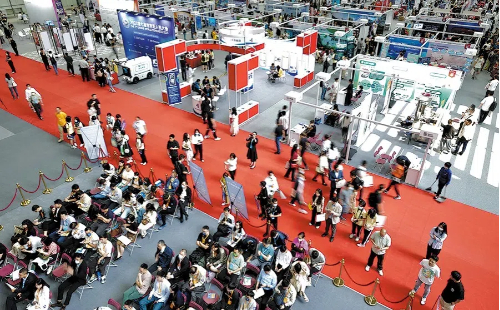Overseas educated Chinese returning for job opportunities
Xu Yu, 30, who graduated from a Spanish university with a PhD in chemistry last year, recently began considering job opportunities in Chinese companies and returning to China for work.
He used to prioritize working as a teacher at a university in either China or Spain, but gradually changed his mind due to the excessively fierce competition.
"Ultimately, I felt that staying with family is a main concern for me when deciding where to find a job, and my family is in China. Also, the salary provided by businesses, which is usually double or even triple what a university can offer, is fairly attractive," said Xu, a native of Qingdao, Shandong province.
"China is a land of opportunities nowadays. I don't think it is a second-best option to return to China for work," he said.
Some highly educated returnees and human resources specialists said that as Chinese businesses and institutions are becoming increasingly competitive in key industries, and as they offer an increasingly open and diversified corporate culture, they are gaining popularity among those with overseas education backgrounds.
"I don't think there's a big difference between working at home and abroad now. Perhaps in around 2010, people might believe it was better to work abroad or in a foreign-funded company, but people's concept of job hunting has changed," said Xu.
Jasmine Jiang, co-founder of Zhike, which provides career counseling for job seekers, mainly those educated in the United States, said that the number of returnees was rising, especially after the COVID-19 pandemic. China becoming stronger and shrinking job opportunities in the US were among the factors affecting their decisions, she said.
"These returnees are targeted candidates for Chinese businesses with cross-border business and those seeking international expansion, and the job titles, salaries and benefits they offer are competitive," she said, adding that returnees in the fields of public health as well as data science and computer science are favored by Chinese enterprises in recent years.
Many Chinese companies have reached a phase of development that the platforms and career opportunities provided allow highly educated returnees to continue to deepen in their research fields and exert their talent, said Jiang.
Li Yuyang, who is expected to graduate with a master's degree in international health management from a university in the United Kingdom next year, said that she plans to return to China for work after graduation, and will consider credible private companies with rapid development and abundant opportunities for personal growth.
"For me, an ideal job is China-based and involves regular international exchanges," said Li, a native of Ningbo, Zhejiang province.
When looking for an employer, she said she will pay attention to the corporate culture, whether it allows diversity, values employee development and encourages innovation.





 play
play